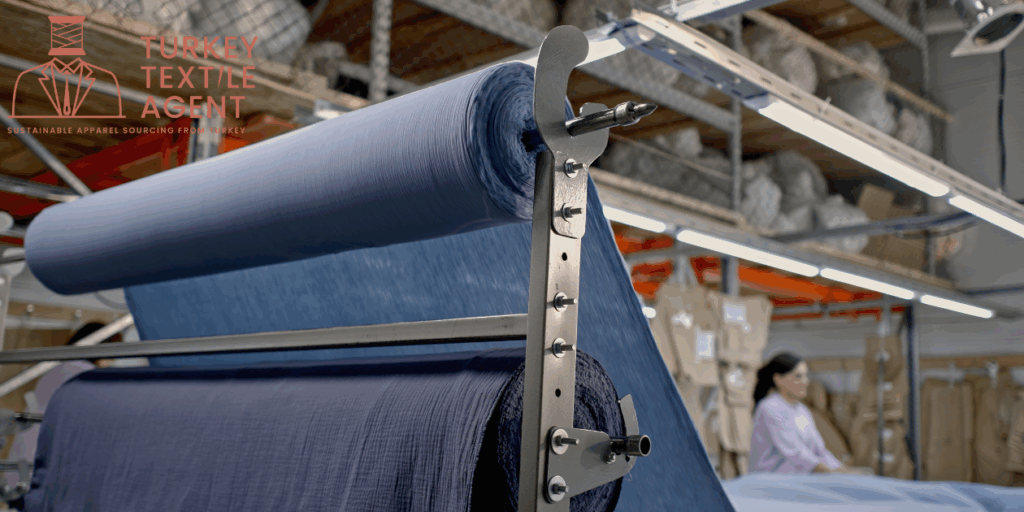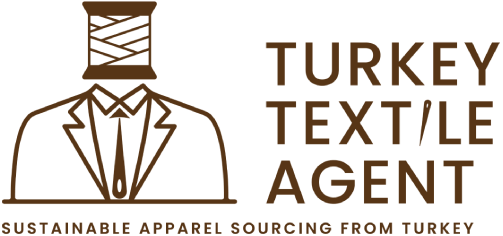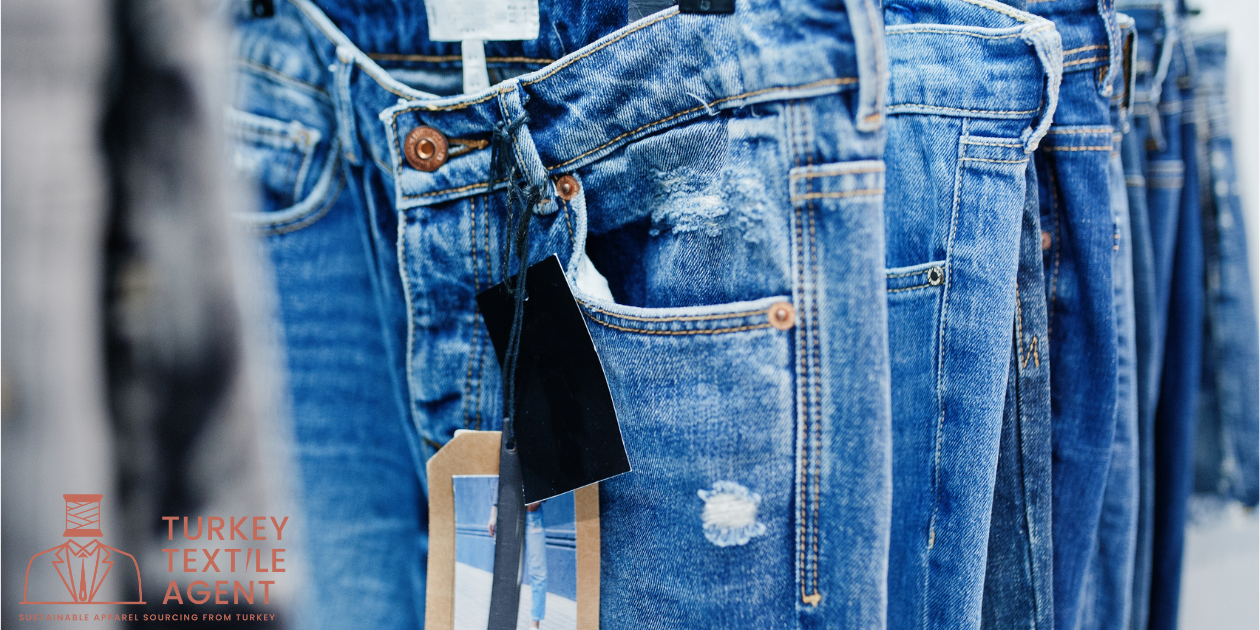The Turkish textile industry has long been a key player in the global market, known for its rich history and high-quality products. However, in recent years, the integration of advanced technology in Turkish textile manufacturing has revolutionized the sector. This transformation has not only enhanced the quality of production but also improved efficiency, sustainability, and innovation. In this article, we will explore how technology is shaping the future of textile manufacturing in Turkey, with a focus on key advancements, trends, and their impact on the industry.
The Evolution of Technology in Turkish Textile Manufacturing
Historical Context: From Traditional Methods to Technological Integration
The Turkish textile industry, once rooted in traditional methods, has undergone a significant transformation in the past few decades. From handwoven fabrics to fully automated textile production, the adoption of technology has been a game-changer. Today, Turkish manufacturers leverage cutting-edge machinery and processes to meet the growing demand for quality textiles worldwide.
In the past, production processes were labor-intensive, relying on skilled artisans for weaving, dyeing, and finishing fabrics. However, with the advent of industrialization and the subsequent integration of digital technologies, the Turkish textile sector has embraced advanced machinery, computer-aided design (CAD) systems, and automated production lines. These innovations have streamlined production, reduced errors, and enhanced overall efficiency.
Key Technologies Revolutionizing Turkish Textile Manufacturing
1. Automation in Textile Production: Efficiency at Scale
Automation has become a cornerstone of modern textile manufacturing in Turkey. Automated systems now control various stages of production, from spinning and weaving to dyeing and finishing. Robotic arms, automated looms, and computerized control systems allow for faster and more precise manufacturing processes. These advancements have drastically reduced labor costs, increased output, and minimized production errors.
For instance, automated cutting machines have significantly reduced fabric waste, while robotic sewing machines have streamlined the garment-making process. The automation of repetitive tasks not only boosts productivity but also ensures consistency and quality across the board.
2. CAD (Computer-Aided Design) and CAM (Computer-Aided Manufacturing) Systems
The use of CAD and CAM systems has become a game-changer in the design and production phases. Designers can now create intricate patterns, textures, and styles digitally, which can be easily modified or customized. These systems also facilitate 3D modeling, allowing designers to visualize fabrics and garments in virtual environments before production begins.
On the manufacturing side, CAM systems enable the precise control of machines for tasks like cutting, stitching, and dyeing. The integration of CAD and CAM helps Turkish textile manufacturers achieve high-quality products while reducing time-to-market and production costs.

3. Digital Printing Technology
Digital printing has emerged as a revolutionary technology in the textile industry. Traditional printing methods involved complex processes, including screen printing, which could be costly and time-consuming. Digital printing, however, uses inkjet technology to print designs directly onto fabrics, offering greater flexibility, speed, and precision.
This technology allows for shorter production runs and more customized designs, making it ideal for on-demand printing and smaller batches. Turkish textile manufacturers are leveraging digital printing to cater to the growing demand for personalized, high-quality designs that stand out in the competitive global market.
4. Smart Textiles and Wearable Technology
The concept of smart textiles—fabrics embedded with sensors or conductive materials—is gaining momentum in Turkey. These textiles can monitor health metrics, adjust temperature, or even change color based on environmental stimuli. Wearable technology is also on the rise, as Turkish textile manufacturers explore ways to integrate sensors into garments to provide innovative solutions for the fashion, healthcare, and sports industries.
For example, smart fabrics are being developed for applications in fitness wearables, such as shirts that monitor heart rate or pants that track movement. This integration of technology in textiles is opening new opportunities for Turkish manufacturers to position themselves at the forefront of innovation.
Impact of Technology on Sustainability in Turkish Textile Manufacturing
Sustainable Production with Eco-Friendly Technologies
As sustainability becomes an increasing concern in global industries, technology plays a pivotal role in reducing the environmental impact of textile manufacturing in Turkey. Advanced technologies allow manufacturers to minimize waste, use fewer chemicals, and reduce water consumption.
For instance, waterless dyeing technologies have been introduced, which drastically reduce the amount of water required in the dyeing process. Additionally, recycling technologies enable the reuse of fabrics, reducing the need for virgin materials and decreasing the overall carbon footprint of production.
The shift toward sustainable technologies is not just a response to environmental concerns but also a strategic move to meet the growing demand for eco-friendly textiles. Turkish textile companies that adopt these innovations position themselves as leaders in the global market, catering to consumers who prioritize sustainability in their purchasing decisions.
Energy-Efficient Manufacturing
Energy efficiency is another area where technology has made significant strides. Energy-efficient machines and smart energy management systems help Turkish textile manufacturers reduce their energy consumption, which is both cost-effective and environmentally responsible. The adoption of renewable energy sources, such as solar panels and wind turbines, is also increasing, allowing manufacturers to reduce their reliance on fossil fuels.

By embracing energy-efficient practices, Turkish textile manufacturers can lower production costs, minimize their environmental impact, and enhance their competitiveness in the global marketplace.
The Role of Technology in Enhancing Product Quality
Advanced Quality Control Systems
With the increasing demand for high-quality textiles, Turkish manufacturers are investing in advanced quality control systems powered by artificial intelligence (AI) and machine learning. These technologies enable manufacturers to monitor production in real-time, detecting defects early and ensuring that products meet international standards.
For example, AI-powered systems can analyze fabric textures, detect color inconsistencies, and even identify potential flaws in the stitching. These technologies help maintain consistency in product quality, reduce the need for manual inspection, and prevent costly defects from reaching the market.
Improved Material Sourcing and Traceability
Technology is also enhancing the sourcing and traceability of materials used in textile manufacturing. With the advent of blockchain technology, manufacturers can now track the journey of raw materials from the source to the final product. This ensures transparency and accountability, which is increasingly important for consumers who are concerned about the ethical sourcing of materials.
In Turkey, many textile manufacturers are adopting blockchain to provide detailed information about the origin and sustainability of their fabrics. This technology enhances consumer confidence and positions Turkish manufacturers as trustworthy, responsible producers in the global textile market.
The Future of Technology in Turkish Textile Manufacturing
AI and Automation in Design and Production
The future of Turkish textile manufacturing will see even greater reliance on AI and automation. As these technologies continue to evolve, the design and production processes will become even more efficient and precise. AI algorithms will be able to predict fashion trends, recommend designs, and optimize production schedules, ensuring that manufacturers can meet consumer demand faster and more effectively.
In addition, the continued development of robotics and artificial intelligence will likely lead to fully automated production lines, where machines handle every aspect of textile manufacturing—from design to final product. This will further reduce costs, improve speed, and allow for highly customized, on-demand production.
3D Printing and the Future of Textile Prototyping
Another exciting development on the horizon is 3D printing in textile prototyping. This technology allows designers to create fabric patterns and prototypes without the need for traditional manufacturing processes. 3D printing will enable Turkish textile manufacturers to create highly customized products, reducing waste and speeding up the prototyping phase.
Blockchain and Smart Contracts in Textile Manufacturing
Blockchain technology will continue to evolve, with an increasing number of Turkish textile manufacturers adopting it for supply chain management, traceability, and smart contracts. Smart contracts will automate various aspects of the manufacturing process, such as payments and inventory management, further streamlining operations and reducing the potential for human error.
Conclusion
The integration of technology in Turkish textile manufacturing has been nothing short of transformative. From automation and CAD/CAM systems to digital printing and smart textiles, technology is reshaping every aspect of the industry. As Turkish manufacturers continue to innovate and adopt more sustainable, efficient, and precise methods, the future of Turkish textiles looks brighter than ever. By embracing these technological advancements, Turkey’s textile industry can maintain its competitive edge in the global market and continue to meet the ever-evolving demands of consumers worldwide.

